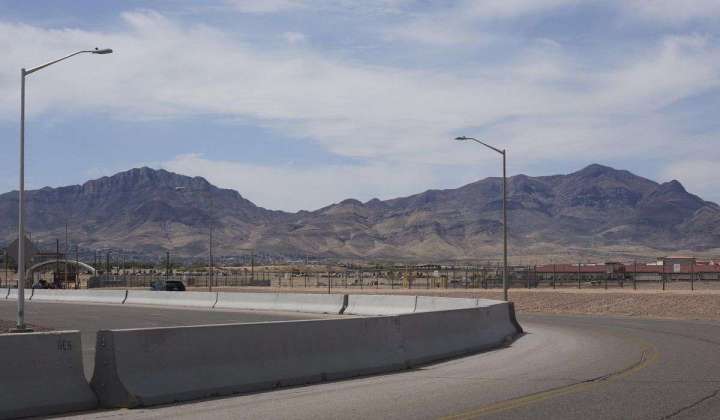U.S. bases that housed Afghan refugees told they had to pay the bill

Eight military bases that housed nearly 45,000 Afghan refugees around the United States incurred more than $250,000 million in damages that rendered some buildings uninhabitable.
A Texas Republican congressman whose district includes Fort Bliss, one of the bases that housed refugees through Operation Allies Welcome (OAW) in 2021, now wants to know why the El Paso installation and the other seven bases are expected to pick up the tab.
“I am alarmed by how these bases will be required to cover the costs of these damages because of their efforts to support Afghan evacuees,” Rep. Tony Gonzales wrote in a letter this week to Deputy Secretary of Defense Kathleen Hicks and other Pentagon officials.
“These entities are responsible for paying $103.1 million from their own budgets to cover damages caused by OAW, such as replenishing depleted stocks of medical equipment, repairing defective infrastructure, refilling the supply of consumable goods, and restoring basic facility items,” Mr. Gonzales wrote.
Fort Bliss and the other bases were left “completely depleted” by the flood of Afghan refugees, the congressman wrote, citing a recent report by the Defense Department’s inspector general, which said base officials were told they had to cover the cost of the damages.
Following the fall of the U.S.-backed government in Kabul in August 2021, the Defense Department evacuated more than 120,000 people from Afghanistan in just over two weeks. The Pentagon described it as the largest airlift in U.S. history.
The evacuees spent months at installations in the U.S. waiting for visa processing and resettlement. They were housed at Fort Pickett, Fort Lee and Marine Corps Base Quantico in Virginia, Fort Bliss in Texas, Holloman Air Force Base in New Mexico, Joint Base McGuire-Dix-Lakehurst in New Jersey, Fort McCoy in Wisconsin, and Camp Atterbury in Indiana.
Many also passed initially through bases in the Mideast and Europe, Ramstein Air Base in Germany which was used as a primary staging area for the evacuation of Afghanistan. But the Defense Department later denied most of a $25 million reimbursement request to repair damages to the airfield.
Air Force officials have reportedly said the damages caused by some of the refugees couldn’t be repaired. “Air Force officials described tables, chairs, and cots broken by guests and tents and cots ruined by spray paint, human biological matter, and holes,” according to the recent Defense Department Inspector General’s report.
Mr. Gonzales, meanwhile, wrote that bases have been informed by the Pentagon that they won’t be reimbursed for some of the costs incurred because some bases started repairing and cleaning up before an official reimbursement plan was established.
“The efforts of these military bases to sustain their full operational capacity by making immediate repairs to damages caused by OAW should not be the cause for punishment because of the [Defense] Department’s procrastination in issuing restoration directives,” Mr. Gonzales wrote.
He went on to express concern about the potentially detrimental impact being had on military strength.
“It is critical that our military forces have the resources necessary to maintain a constant state of readiness,” Mr. Gonzales wrote. “It is essential that all affected entities are returned to their full operational capacity as soon as possible.”






